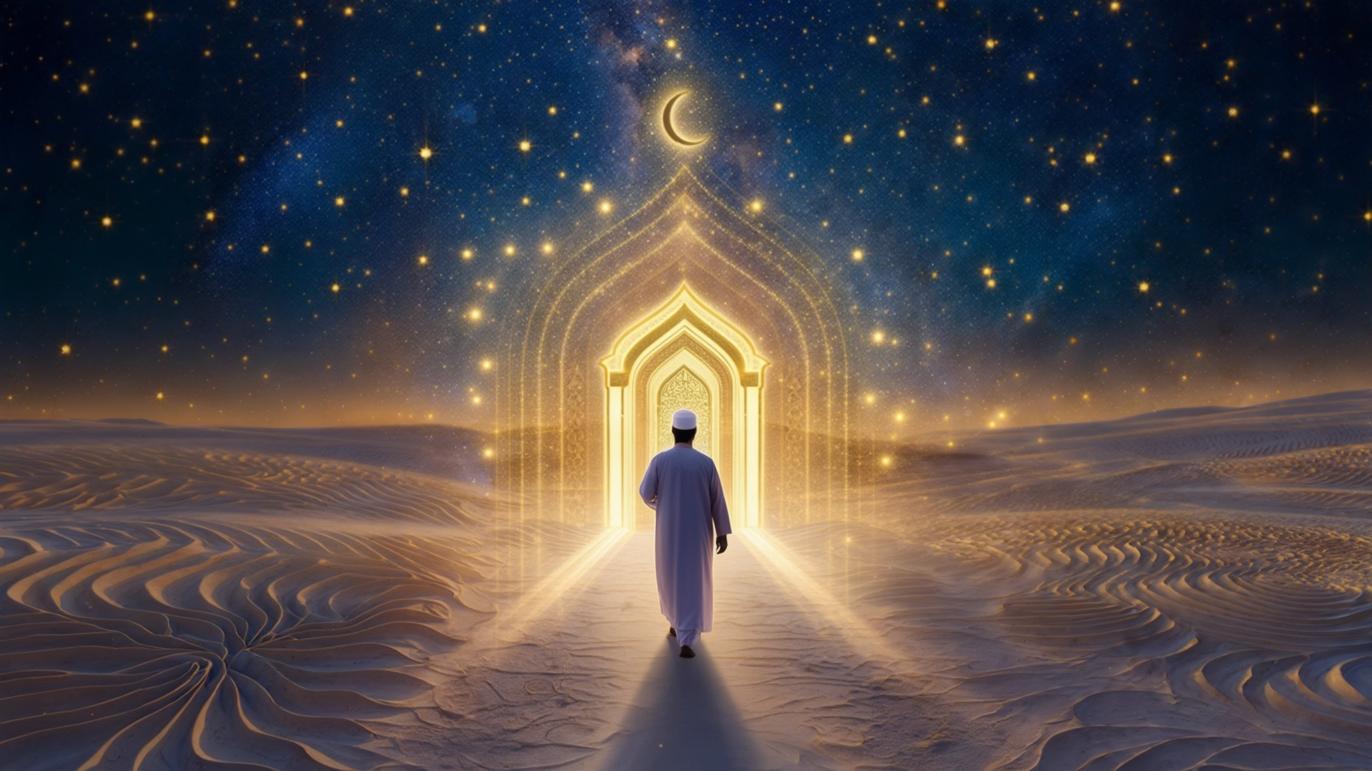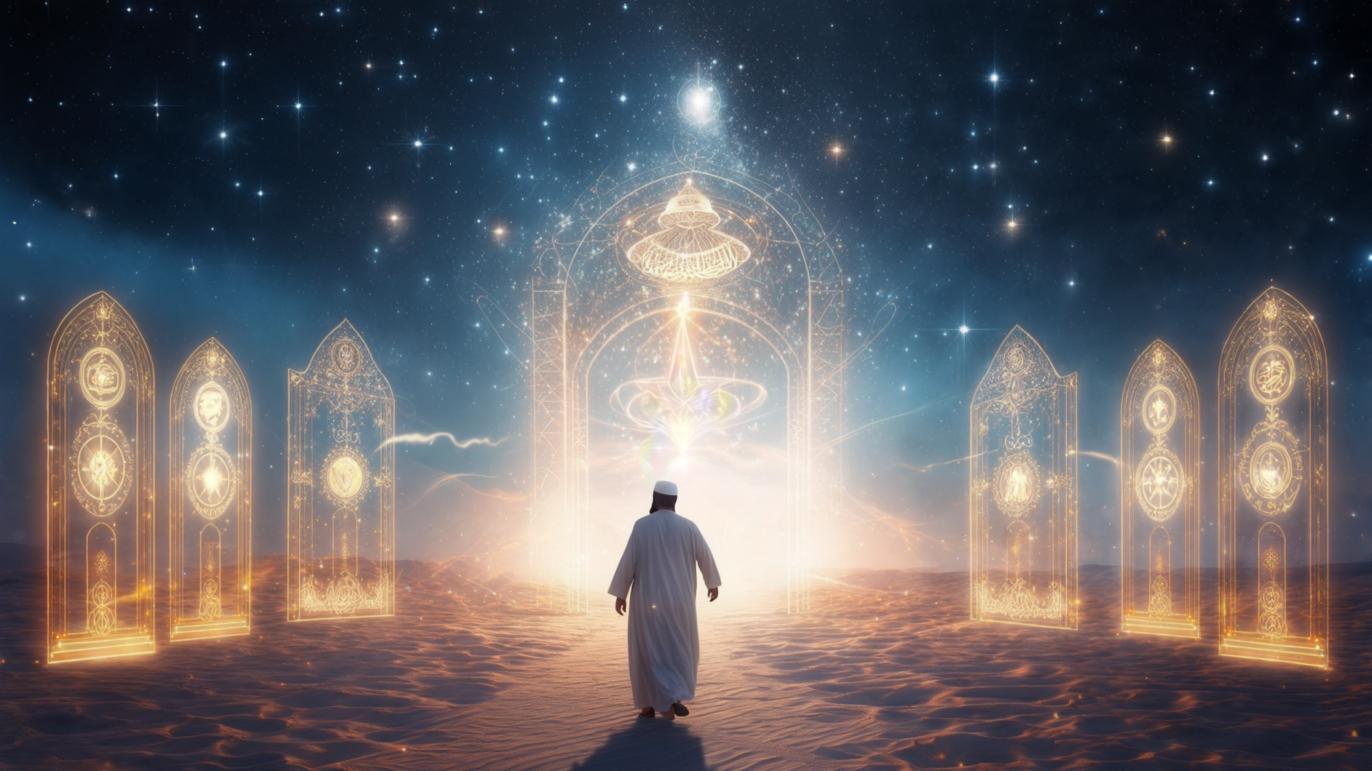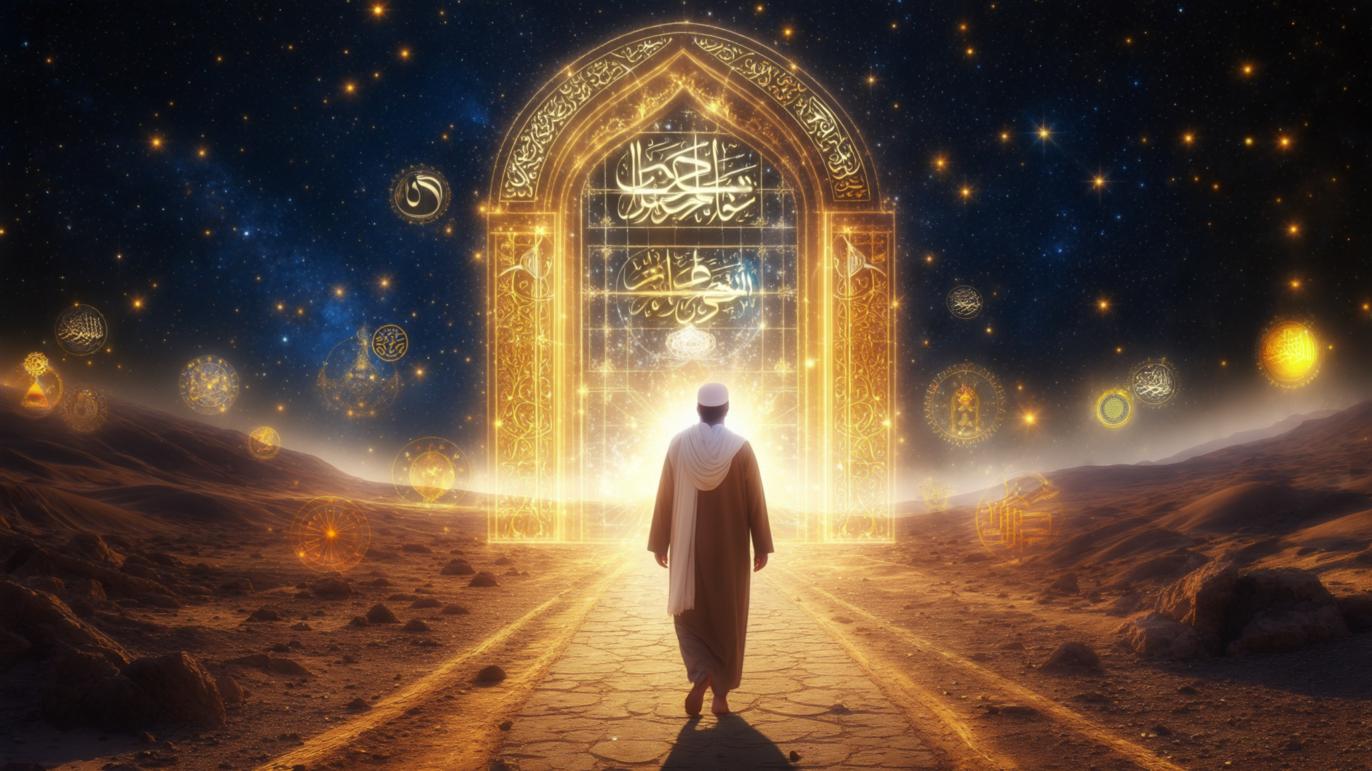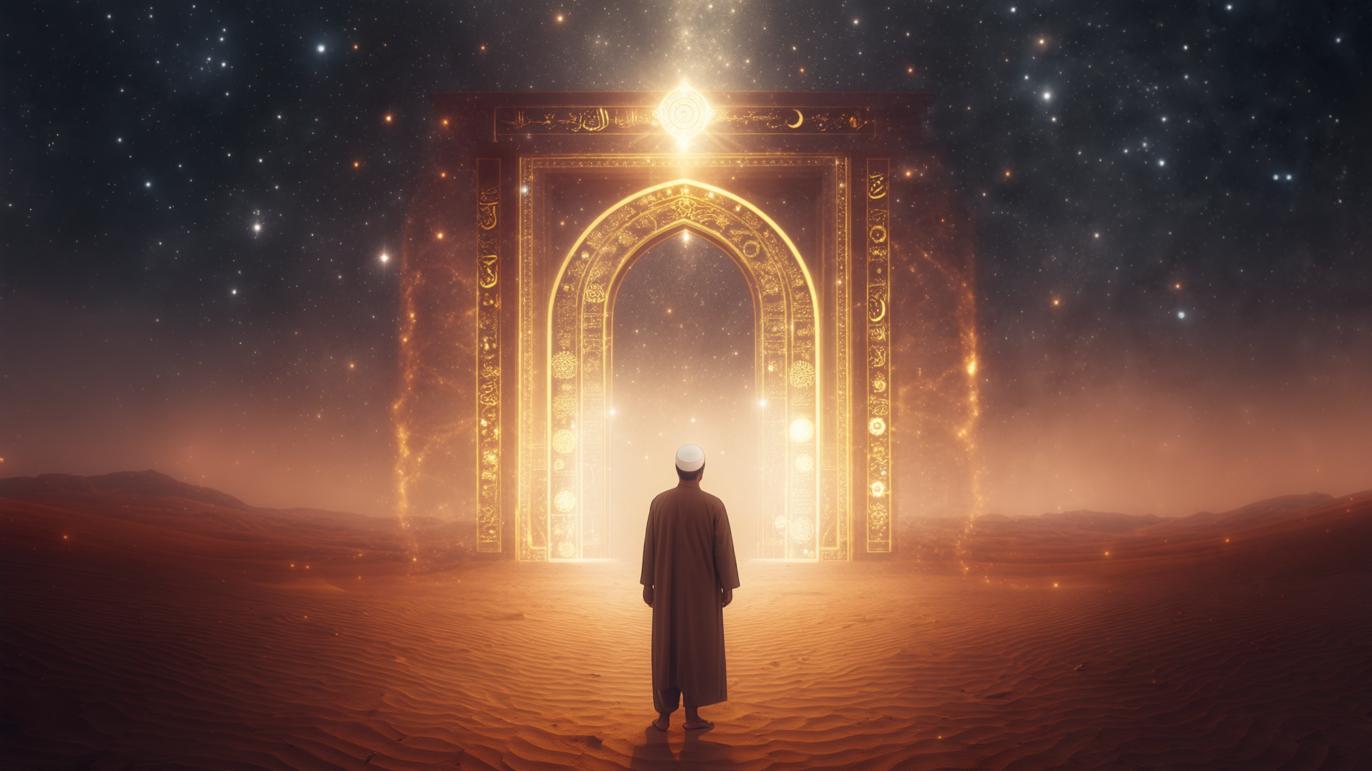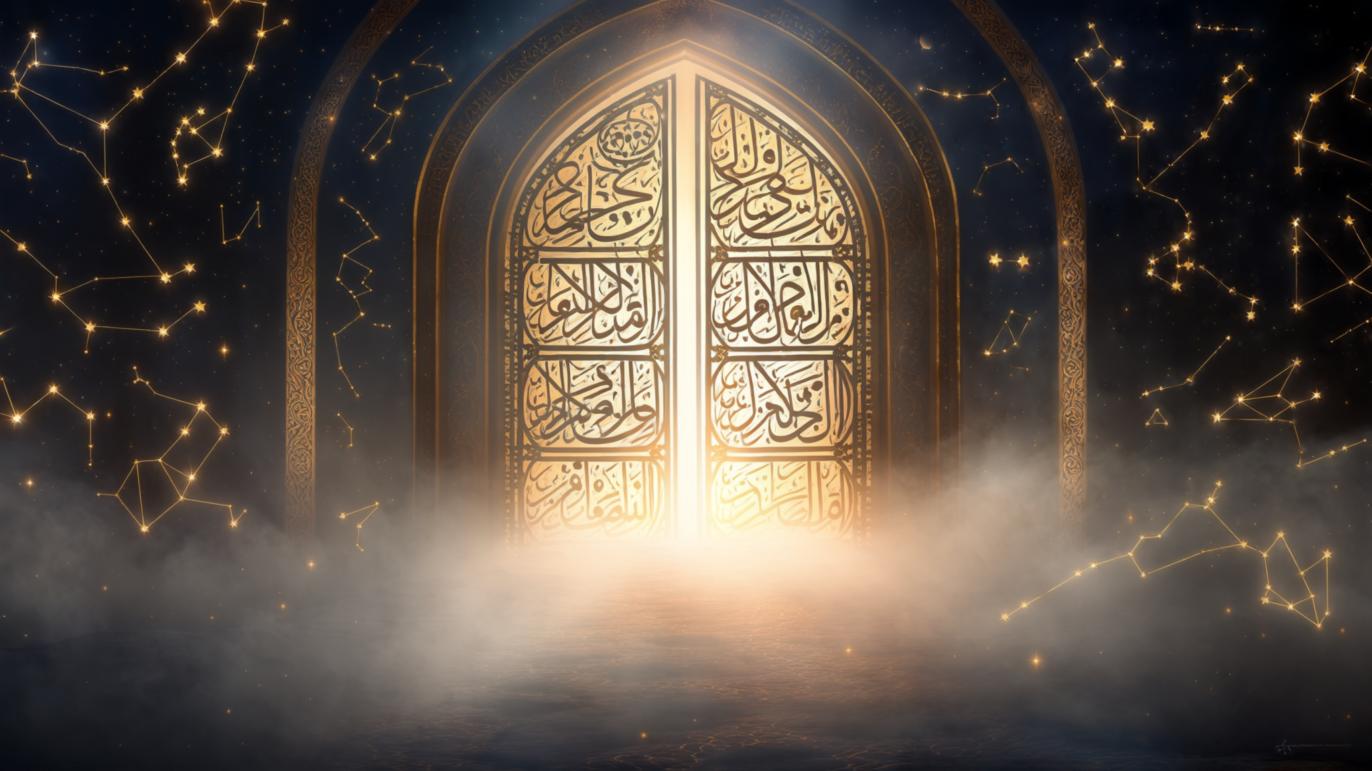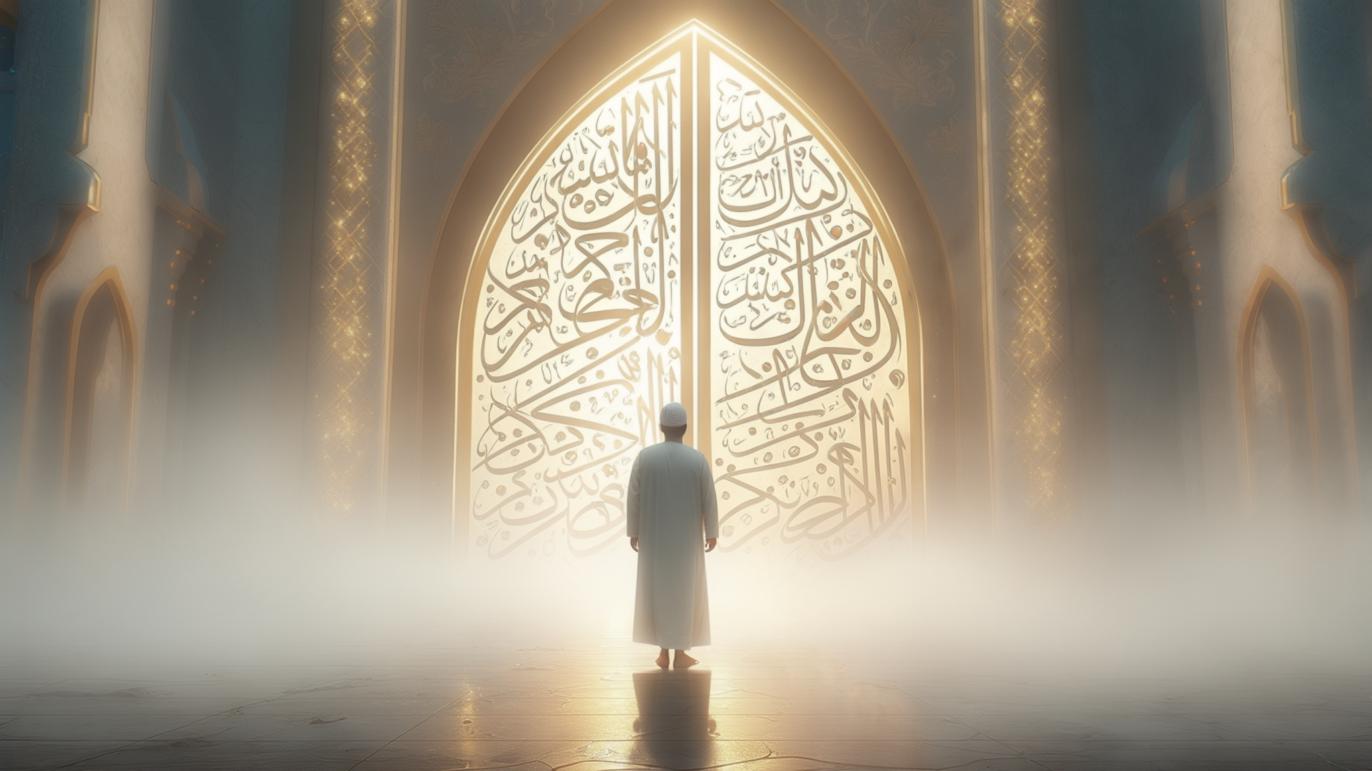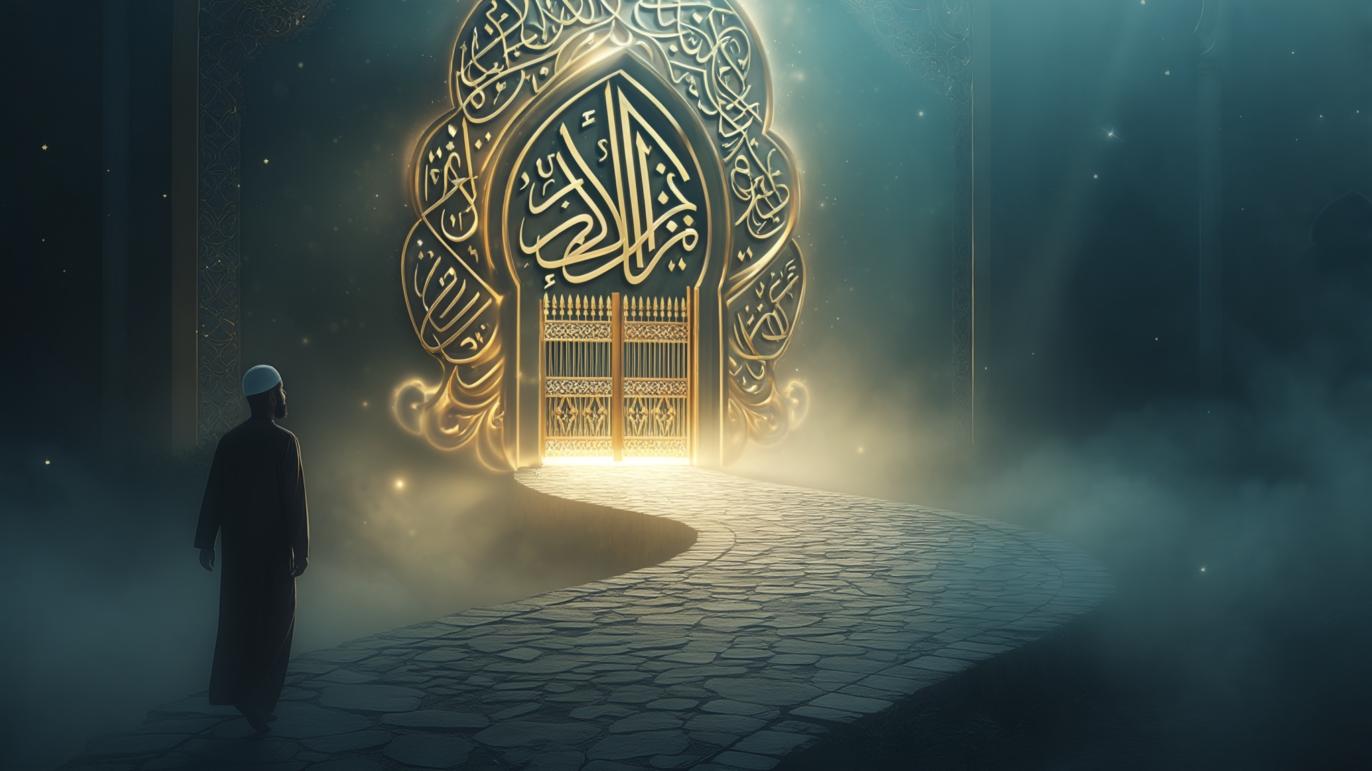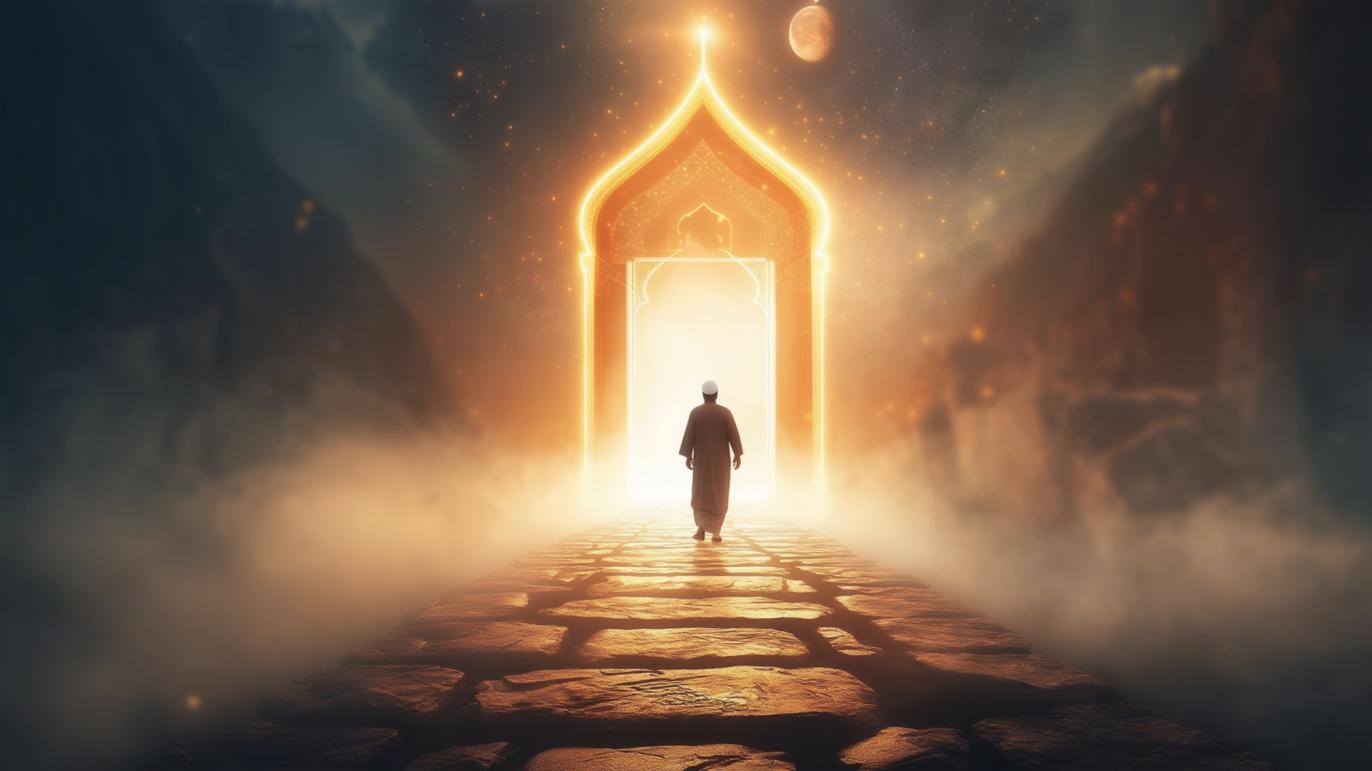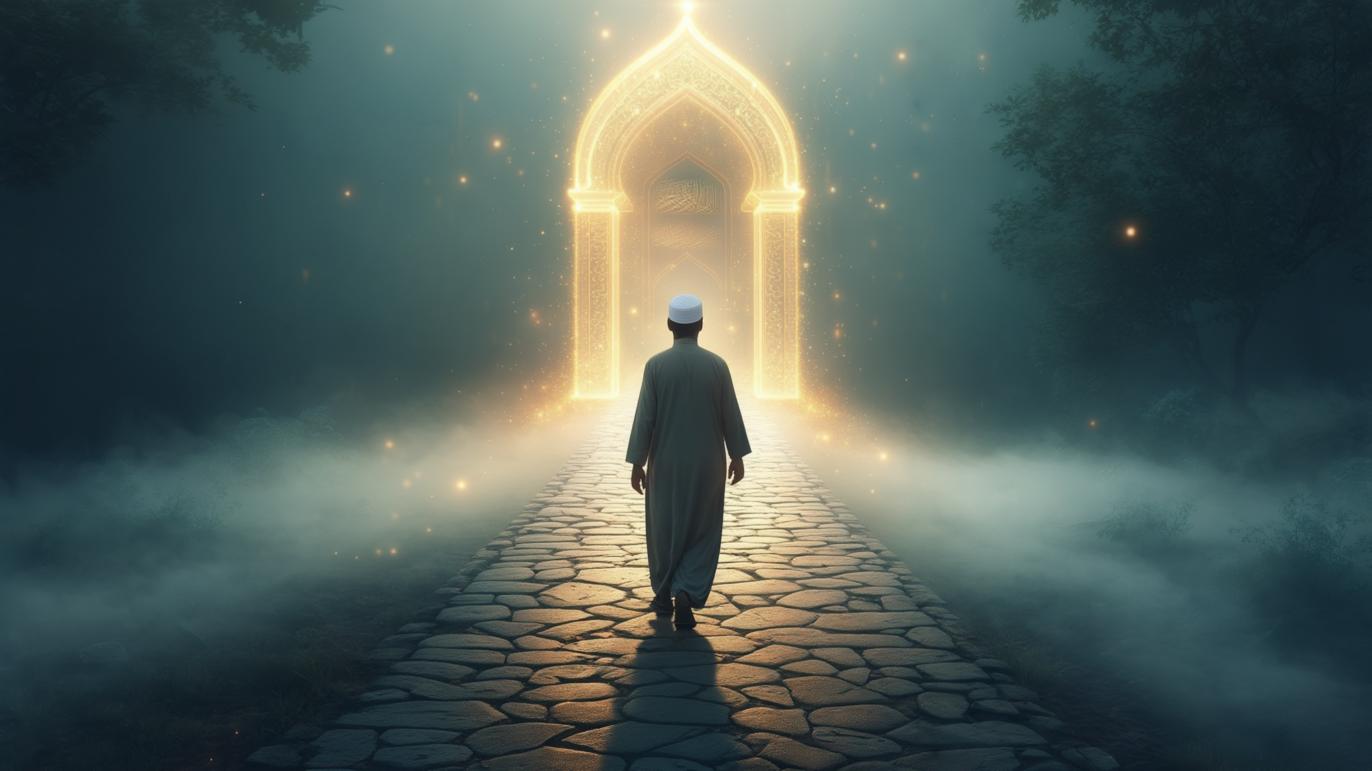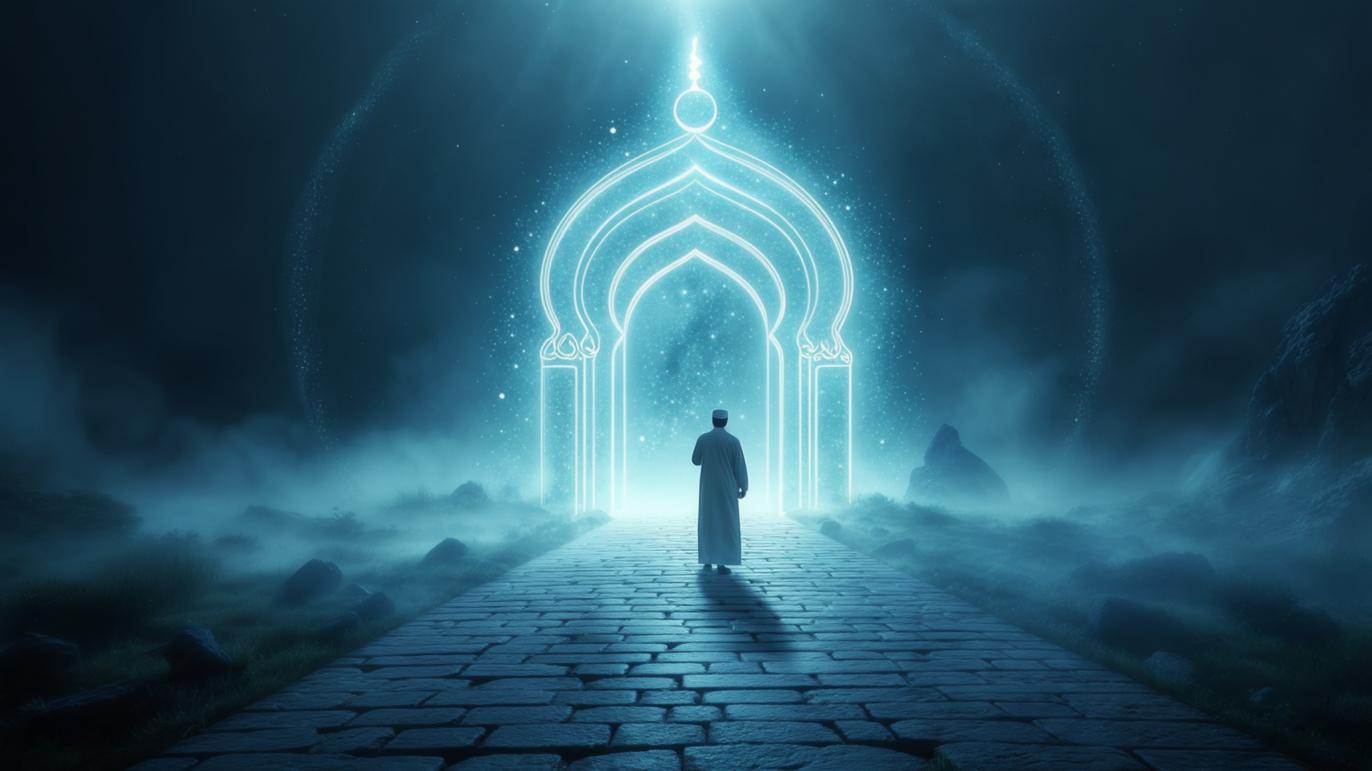In the name of Allaah, the Most Merciful, the Bestower of Mercy.
Know, may Allaah direct you to obedience to Him, that the true and straight Deen, the way of Ibraaheem is that you worship Allaah alone making the Deen purely and sincerely for Him. This is what Allaah commanded all of the people with, and it was for this that He created them.
and the meaning of worship, 'ibaadah, here is to single Allaah out with all worship, Tawheed. And the greatest of all that Allaah has commanded is Tawheed which is to single out Allaah with all worship. The most serious thing that He forbade is shirk, which is to invoke others besides Him, along with Him.وَمَا خَلَقْتُ الْجِنَّ وَالْإِنسَ إِلَّا لِيَعْبُدُونِI did not create jinn and mankind except that they should worship Me.Soorat adh Dhaariyaat: 56
وَاعْبُدُوا اللَّهَ وَلَا تُشْرِكُوا بِهِ شَيْئًاWorship Allaah alone, making all worship purely for Him, and do not associate anything in worship along with Him.Soorat an Nisaa: 36
So if it said to you: What are the three principles which a person must know? Then say the servants knowledge of His Lord and His Deen and his Messenger Muhammad.
THE FIRST PRINCIPLE
So if it is said to you: ‘Who is your Lord?’ Then say: ‘My Lord is Allaah, who has nurtured me and all of creation with His favours and blessings. He is the one whom I worship, and there is no other whom I worship besides Him.’
. Everything besides Allaah is a created being and I am one of the creation.الْحَمْدُ لِلَّهِ رَبِّ الْعَالَمِينَAll praise is for Allaah, the Lord of all creation.Soorat al Faatihah: 1
So if it is said to you: ‘How did you arrive at this knowledge of your Lord?’ Then say: ‘Through His signs and those things which He has created; and from his signs are the night and the day, the sun and the moon; and from that which He has created are the seven heavens, and the seven earths, and all those within them, and whatever is between them.’
and His, the Most High's Saying: "Your Lord is Allaah who created the heavens and the earth to six days, then ascended upon the Throne. He causes the night to cover the day which it follows with haste; and the sun, the moon and the stars are subservient and subject to His command. Certainly creation and commandment are His alone. Exalted is Allaah the Lord of all creation." [Soorat al A'raaf; 54]وَمِنْ آيَاتِهِ اللَّيْلُ وَالنَّهَارُ وَالشَّمْسُ وَالْقَمَرُ ۚ لَا تَسْجُدُوا لِلشَّمْسِ وَلَا لِلْقَمَرِ وَاسْجُدُوا لِلَّهِ الَّذِي خَلَقَهُنَّ إِن كُنتُمْ إِيَّاهُ تَعْبُدُونَAnd from His signs are the night and the day, and the sun and the moon. Do not prostrate to the sun, nor the moon, but prostrate to Allaah who created them, if you truly worship Him.Soorat Fussilat: 37
The Lord is the one who is worshipped, and the proof is the Saying of Allaah, the Most High, “O mankind! Worship your Lord, Who created you and those who were before you so that you may be of those who seek to avoid Allaah’s anger and punishment. Who has made the earth a resting place for you, and the sky as a canopy, and sent down water (rain) from the sky and brought forth therewith fruits as a provision for you. Then do not set up rivals unto Allaah (in worship) while you know.” [Soorat al Baqarah: 21-22]
The creator of these things is the One who deserves to be worshipped. — Ibn Katheer (may Allah have mercy upon him)All the types of worship which Allaah commanded like Islaam (submission and obedience to Allaah), Eemaan (true Belief comprising the belief of the heart, speech of the tongue and action of the limbs), and Ihsaan (perfection of worship), and from that is invocation/supplication (du'aa), reverential fear (khawf), hope and longing (rajaa), trust and reliance (tawakkul), fervent desire (raghbah), dread (rahbah), reverence and humility (khushoo'), awe (khashyah), turning repentantly (inaabah), appealing for aid and assistance (isti'aanah), seeking refuge (isti'aadhah), seeking deliverance and rescue (istighaathah), sacrificing (dhabh), vows (nadhr) and the rest of the types of worship commanded but proof for this is the Saying of Him, the Most High: "And the places of Prayer are for Allaah alone, so do not invoke anyone along with Allaah." [Soorat al Jinn: 18].
Anyone who directs any part of that to anything besides Allaah, then he is a mushrik (pagan/polytheist), an unbeliever (kaafir), and the proof is the Saying of Him: “And whoever worships along with Allaah any other object of worship has no proof for that; his reckoning will be with his Lord. Indeed the unbelievers will never prosper.” [Soorat al Mu’minoon: 117]. In the hadeeth there occurs: “Invocation is the core of worship.” And the evidence for this is the Saying of Allaah: “And your Lord said: “Invoke Me, I will respond to your (invocation). Verily! Those who scorn My worship, they will surely enter Hell in humiliation!” [Soorat Ghaafir: 60]
The evidence for reverential fear (khawf) is the Saying of Allaah: “So do not fear them, but fear Me and beware of disobeying Me, if you are truly Believers.” [Soorat al ‘Imraan: 175].
The evidence for hope and longing (ar raja) is the Saying of Allaah: “So whoever hopes to see His Lord and be rewarded by Him, then let him make his worship correct and make it purely and sincerely for Him; and let him not make any share of it for anyone other than Him” [Soorat al Kahf: 110]
The evidence for trust and reliance (at tawakkul) is the Saying of Allaah: “And place your reliance and trust in Allaah if you are true Believers” [Soorat al Maa’idah: 23] and He said: “And whoever places his reliance and trust in Allaah then He will suffice him” [Soorat at Talaaq: 3].
The evidence for the fervent desire (ar raghbah), dread (ar rahbah) and reverence and humility (al khushoo’) is the Saying of Allaah: “They used to hasten to acts of devotion and obedience to Allaah, and they used to worship Allaah upon love and desire, and upon fear, and were reverent and humble before Allaah.” [Soorat al Ambiyaa: 90]
The evidence for awe/dread (al khashyah) is the Saying of Allaah: “So do not have awe of them, but have awe of Me” [Soorat al Maa’idah: 3]
The evidence for turning repentantly (al inaabah) is the Saying of Allaah: “So turn, O you people, repentantly and obediently to your Lord, and submit obediently to Him” [Soorat az Zumar: 54]
The evidence for appealing for aid and assistance (al isti’aanah) is the Saying of Allaah: “O Allaah You alone we worship, and to You alone we appeal for aid” [Soorat al Faatihah: 5] and in the hadeeth there occurs: “If you seek help, then seek the help of Allaah.” [Reported by at Tirmidhee and declared Saheeh by Shaykh al Albaanee in al Mishkaat # 5302]
The evidence for seeking refuge (al isti’aadhah) is the Saying of Allaah: “Say: I seek refuge with the Lord of dawn” [Soorat al Falaq: 1] and “Say: I seek refuge with the Lord of mankind” [Soorat an Naas: 1]
The evidence for seeking deliverance and rescue (al istighaathah) is the Saying of Allaah: “When you sought aid and deliverance of your Lord and He responded to you” [Soorat al Anfaal: 9]
The evidence for sacrificing (adh dhabh) is the Saying of Allaah: “Say: Indeed my prayers, my sacrifice, my living and my dying are all purely and solely of Allaah, Lord of all creation. There is no share of any of that for other than him” [Soorat al An’aam: 162-163]. Also the Prophet said “Allaah has cursed anyone who sacrifices for other than Allaah.” [Reported by Muslim]
The evidence for vows (an nadhr) is the Saying of Allaah: “They fulfill their vows and they fear a day whose evil is widespread” [Soorat al Insaan: 7].

